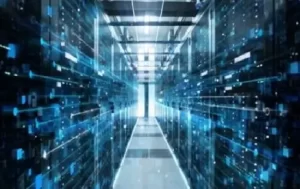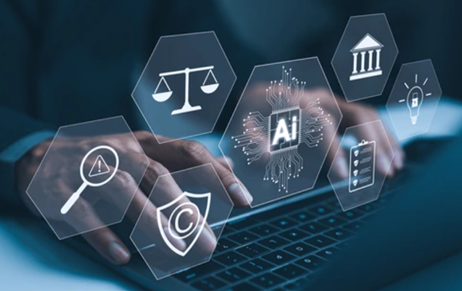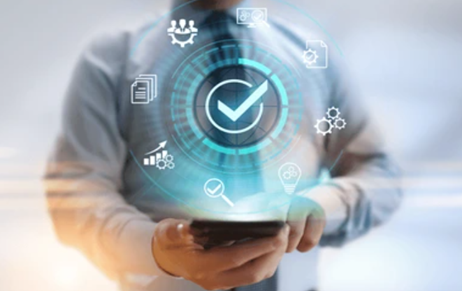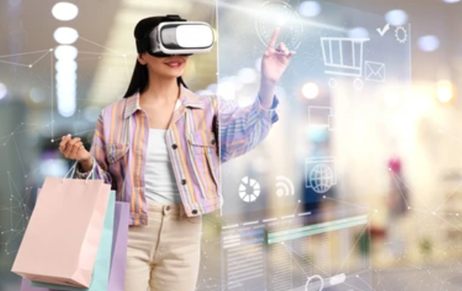Artificial intelligence has a wide range of effects, including on intellectual property law. At best…
Whodunit?! AI Generative Works and Personality Rights of Artists
Introduction
Personality rights have been recognized to be protected rights under common law and IPR law. These rights protect a person’s domain and control over how they want to project and communicate their image to the larger masses. It naturally follows that the right to the commercialization of one’s image also rests with the individual and the courts have gone so far as to recognize an individual’s image as their own intellectual property, which they may freely assign and commercialize as per their liking.[i]
The onset of artificial intelligence and deep learning has revolutionized the manner in which people work at an unforeseeable pace and scale, and the law is on the chase, as is usually the case with technological revolutions. A fascinating outcome of this technology is the formulation of AI Generative Tools (AGT). AGTs are capable of mimicking features such as a person’s voice, pitch and demeanour and generate videos and sound recordings that may seem to have originated from the persons being mimicked themselves. Some tools allow a user to record songs in the voice of famous artists, for example Emin-AI-em, which generates a song, sung in the unique voice, style and manner of Eminem.[ii] Similarly, drayk.it, allows you to do the same, but with the unique qualities of Drake’s music.[iii] Recently, news surfaced that famous DJ David Guetta used Emin-AI-em to record a portion for his song which sounds exactly the same as Eminem. While Guetta did not release the same, what if someone does? To go beyond that, a person’s art is considered to be the projection of one’s personality and is a founding principle of IPR. This blog deals with this peculiar interplay of modern technology and an individual’s personality rights, or more specifically, their right to publicity.
Right to personality and publicity: A legal and judicial overview
In the case of Titan Industries vs. M/S Ramkumar Jewellers[iv], the defendant used Bollywood megastar Amitabh Bachchan’s images on its hoardings to advertise their jewelleries, who also happened to be the brand ambassador of the jewellery brand, Tanishq. The Delhi High Court while ruling in favour of the plaintiff, Titan Industries, also held that a celebrity has the right to control and dictate how their identity is to be used and transmitted. A celebrity was stated to be someone who is famous or someone who is known to and talked about by many people. Any person making commercial gains out of unauthorized usage of a celebrity’s image would amount to denial and violation of their ‘right to publicity’. As per Section 17(b) of the Copyright Act, 1957, the plaintiff was held to be the legitimate owner of the copyright in Mr. Bachchan’s images. In the course of adjudging upon the issue of misappropriation of the right to publicity, the Court laid down two necessary ingredients to affix such liability: “validity”, where the court would ascertain whether the person had the right to use the advertised image; and “identifiability”, where the celebrity being referred to is identifiable from such unauthorized usage without any aid. The Court recognized the violation of right to personality as a tort and made available the common law remedy of passing-off for such cases.
[Image Sources : Shutterstock]

Commercial free speech
However, courts have found against claims for violations of right to personality and publicity when the usage has arisen exclusively out of information available in the public domain, prior to the usage. In the case of Makkal Tholai Ltd. vs. Muthulakshmi[viii], the Madras HC dealt with the right to privacy and related rights. The Court in its ruling stated that the impugned telecast about the personal life of the plaintiff is legitimate to the extent that the same is based on information which is publicly available. In the case of Digital Collectibles vs. Galactus Funware[ix], the plaintiff claimed a breach of personality rights and passing off against the defendant’s usage of the name and fame of certain cricketers to allegedly market and sell NFT cards and online fantasy sports game. The plaintiff had entered into contracts with some of these cricketers to produce and sell NFT cards bearing their names and stats. The Court concluded that passing off is the appropriate threshold to apply for claims of violation of personality rights. Further, the Court found against the plaintiff’s claim holding that the defendant merely made use of the information available to the public at large and that it did not amounting to passing off. As for the graphical representations of the cricketers’ appearances, the Court found those to be in the nature of original artistic work and covered by the right to ‘commercial free speech’. The Court drew comparisons with lampooning, parodies, etc. which are also covered under free speech. The Court laid down the principle that personality rights are not absolute and subject to free speech.
Interplay of personality rights with AI generative works
Indian courts have prescribed the common law remedy of passing off to be the appropriate remedy for cases of misappropriation of a person’s image and reputation to make commercial gains. Hence, cases where a person uses an AI tool to create a song that confuses the layman as to the origin of the work would be held to in violation of the aforesaid right. However, what would be the case if it is not so? It seems to be the case that parodies, mimicking, etc. would be covered under commercial free speech. From the current legal standpoint, it seems that a person can make use of these tools as long as they do not give the impression that he/she is associated with the artist whose voice/mannerisms/cadence has been copied by the AI.
On the other hand, situations where such association is not misrepresented but the usage leads to commercial benefits nevertheless may offer a problem given that passing off is the threshold for illegality. If someone decides to release a song with an excerpt generated by Emin-AI-em by making clear that the same has nothing to do with the artist Eminem or that the same was generated by an AI tool, would Eminem be able to sue this person for commercialization of such a song? If not, then would the same not encourage labels to just use the AI tool instead of engaging the artist and paying his fees? The voice, pitch, cadence and music style that have come to be liked so much by the public is the result of an artist’s labour. If a certain style or a certain rhythm combined with the umpteen factors that make a singer’s music seem unique are all copied by an AI tool, then should that not violate his personality rights? The current IP regime, namely the Copyright Act only protects the final expression and not the necessary ingredients or the qualities that are unique to one person’s work. Section 14 of Trade Marks Act also restricts itself to names and representations. Nevertheless, similar to a person’s image, the likeability of Eminem’s music may be deemed to be his intellectual property, despite no strict rule of law prescribing the same. Reiterating the fact that personality theory is one of the founding principles of IPR law, we could argue for the inclusion of the same under the net of ‘personality rights’ as recognized by Indian courts and the revision of the passing off threshold to effectively protect the intellectual creation of artists. Given the rapid proliferation of AI and tools like Emin-AI-em and drayk.it, it remains to be seen how judges and lawmakers will rule upon the same.
Author : Arihant Shrivardhan, A Student at Institute of Law, Nirma University. in case of any queries please contact/write back to us via email to chhavi@khuranaandkhurana.com or at IIPRD.
[i] https : //spicyip.com/2009/12/publicity-rights-sourav-ganguly-vs-tata.html.
[ii] https://variety.com/2023/music/news/david-guetta-eminem-artificial-intelligence-1235516924/
[iii] https://www.complex.com/music/ai-drake-song-generator.
[iv] 2012 (50) PTC 486 (Del)
[v] 2011 (47) PTC 1 (Del)
[vi] https://www.wipo.int/amc/en/domains/decisions/html/2009/d2009-1247.html
[vii] C.S. No. 361/1997
[viii] (2007) 6 MLJ 1152.
[ix] 2023:DHC:2796



